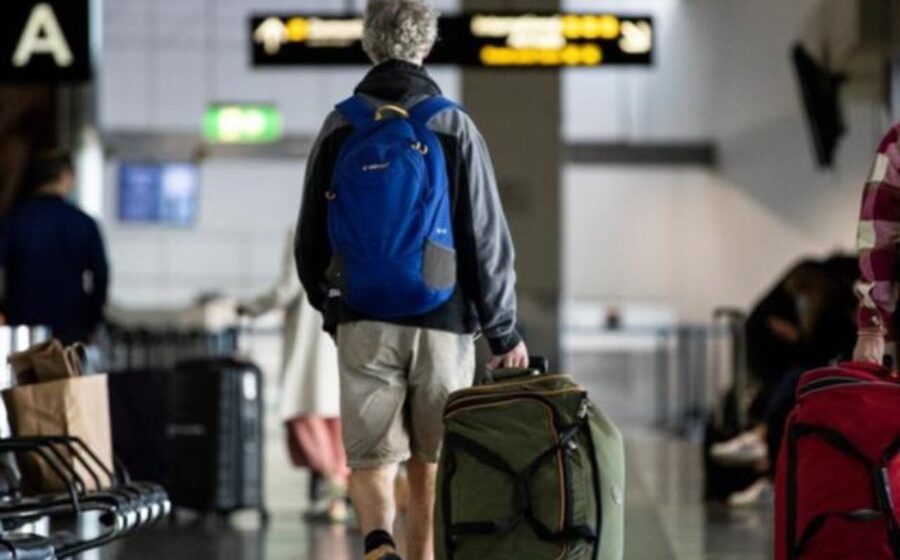Australia’s international border will remain open amid overseas foot and mouth disease outbreaks despite a growing push by the opposition to close it, the agriculture minister says.
Senator Murray Watt said the biggest biosecurity threat is not travellers but rather undeclared meat products, with mail centres increasing parcel screening processes in response.
Calls to shut the border are damaging Australia’s agricultural reputation, Watt said, as he criticised the coalition for causing hysteria.
“We have absolutely no evidence at all that the virus is in Australia … it does affect our international trade if people think that Australia has this disease,” he told ABC radio on Monday.
Biosecurity measures already implemented by the government are working, Watt said.
Airport officers are reporting higher compliance by travellers, with the rates of undeclared risk items and contaminated footwear down compared to previous weeks.
Nearly 3700 passengers were intensively assessed or questioned by biosecurity officers at Melbourne airport on Saturday alone, Watt said.
He said the seriousness of the disease was getting through to travellers.
“As we have said all along, we believe the greater risk of (foot and mouth disease) getting into Australia is via incorrectly or illegally labelled meat products from overseas,” he said in a statement.
“We have now increased our surveillance of mail from Indonesia and China so that every parcel is screened and so we can identify any potential biosecurity risks.”
However, Opposition Leader Peter Dutton has called on the government to pause travel from Indonesia to stop the disease from entering Australia.
“If the prime minister has a reason, if he’s got some significant piece of intelligence that says that this is under control, and the coalition is not aware of that … then I respect that,” he told Sydney radio station 2GB.
Dutton called on the government to properly explain the situation on its decision-making over foot and mouth disease prevention.
“(The prime minister) is, frankly, playing with a loaded gun here,” he said.
“It’s not just an impact on people … who would lose their entire herd, but it would have a huge impact, $80 billion worth, on the economy.”
Meanwhile, industry leaders have reported questions from export partners over whether or not the livestock disease was spreading in Australia, Watt said.
“It’s putting an extra workload on the industry to ensure that correct information is being circulated to the world about the situation here,” he said.
“It distracts attention from the fact that we are free of the disease and we have the strongest response Australia has ever imposed for a biosecurity threat.”
Opposition employment spokeswoman Michaelia Cash said the government was doing too little, too late, to help prevent outbreaks of the disease.
“Go to Western Australia at the moment, people are absolutely up in arms,” she said.
“As an island nation, you have the ability to keep such disease out. What we are seeing under Murray Watt and Labor is a complete disregard for the potential economic impact, the devastation that could be reaped on Australia.”
A number of biosecurity measures have been rolled out to manage travellers from Indonesia, including shoe sanitation mats, information campaigns and increased passenger screening.
Watt flagged further measures would be announced this week.



